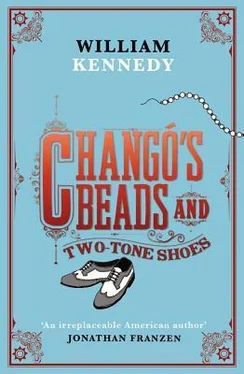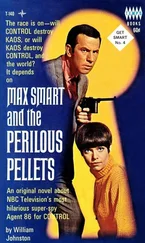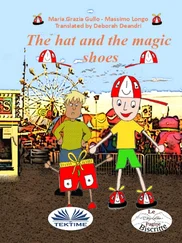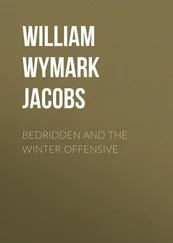“What is this Cuba for chrissake?” Cooney said. “They hit you for nothin’ and they shoot you for standin’ outside, even inside, and you didn’t do a goddamn thing to them, this is fucking rotten hell if I ever saw it.”
“Good reason to keep your head down,” Quinn said. “Maybe they think you’re a sniper. They don’t know you’re a tourist. Crawl to the hallway, head down. What’s your friend’s name who was shot?”
“Chet Looby.”
“Where’s he from?”
“Baltimore, same as me. Why you askin’ me questions?”
“I keep track of stuff,” Quinn said.
He crawled past a room where loud music was playing, a Cuban song he recognized, one of the few he could name, a son , “Lágrimas Negras.” He equated it with old death in Cuba as announced on the Miami Herald ’s newswire, or rebels dead in the street trying to get rid of Machado, or the distant slaughter in the Mambí revolution his grandfather had written about — slaves and rebels on horseback, hacking out a mythic path with their machetes, a prelude to today’s diorama of corpses baking on sidewalks in the park, a newly blooming garden of rebel death. In his historical memory these warriors fell without bleeding but now the gore was personal for Quinn, its splatter visible on his trousers, and he could hear its music. On the streets below, the attack wave of the new sacrificial generation was becoming aware that bleeding to death was its destiny and that suicide-in-arms is a noble choice of exit from a righteous war. And Black Tears from on high fell onto these very necessary corpses.
The hundred young rebels in the second wave, now sitting in cars, trucks or houses, waiting, could hear no music. Some heard on Radio Reloj that the attack had begun, some could hear the calamity of the Palace machine guns, but their leader, struck with indecision, could give no signal to attack those guns. And so the first wave was massacred and the president preserved.
The force of survival is as unconsciously fierce as the charge toward fatal heroism is willful. In the land of perpetual revolution, one never knows toward what one moves.

As Quinn and Cooney came down the stairs into the lobby a woman in hysterics ran in from the street, a bellman moved to lock the doors, but another half dozen squeezed through after her; and then the doors were sealed against further sanctuary. People pounded the door in vain. Quinn saw two dozen people already sheltered in corridors off the lobby, away from windows and stray or not-so-stray bullets. Quinn and Cooney walked down the hallway past the refugees, and behind a half-open door found a man of managerial air venting anguish into the telephone. Quinn pushed Cooney toward the man and said, “An American tourist, name of Chet Looby from Baltimore, was just shot dead by street fire in five-oh-three, and this man is his friend and saw it happen.” The manager’s face registered panic as Quinn turned toward the corridor and said, “See you later, Mr. Cooney.” Cooney gave a don’t-go gesture, but Quinn was already gone.
When the police came to talk to Cooney they would advise him to say a random shot killed his friend; but Cooney would insist, “They pointed guns up at us, two soldiers did, and then they machine-gunned us. Wasn’t nothin’ random about it.” The American embassy and the Cuban government both vowed to investigate Cooney’s view of events. The day’s early death count would be forty-seven rebels, six soldiers, and maybe a half a dozen civilians: the Chinese bus driver, who would die while his head wound was being treated at a military hospital, two of his twelve wounded passengers, both children, also Chet Looby, and who knows who else? Joe Cooney would find his blue seersucker sports coat riddled in his closet by machine gun fire. A painting in Bellas Artes, A Faun and a Young Girl by Rubens, would be cut in half by a blast from a fifty-caliber gun on the tanqueta, and the façade of the museum would be so ravaged by gunfire it would close for fifteen days.
Rebels and Palace guards would shoot each other for forty-five minutes. Firing from rooftops and streets, echoing from sites remote from the Palace, would go on for three hours, and Renata would keep her tourist visitors on the floor of the museum for more than two hours. One man in her charge would suffer a heart attack, four others would be cut by flying glass, and two women would faint and be slapped awake by Renata. After the third hour’s final silence the museum’s director would tell Renata that Diego’s corpse had been found in the fountain of Zayas Park, and that the Military Intelligence Service, SIM, had been asking if anyone in the museum knew Diego, and someone said that Renata did.
“I knew him only through painting and sculpture, as a man of the arts,” Renata told the director.
“Of course,” he said. “Now go home and stay there and don’t talk about Diego.”
Quinn called Max four times from a pay phone to update the attack, the street scene, the sprawl of corpses. He dictated a story on the sudden death of Cooney’s friend and Max told him he was hired. When the shooting fell away to single sporadic shots in the distance, Quinn walked toward Bellas Artes to find Renata, but was stopped half a block away by soldiers. He explained his work and showed his letter from Max, which the soldier could not read. A woman came out of the museum and Quinn asked her if she’d carry a message to Renata, and she agreed. Two men from SIM came out and took Quinn into the museum and asked how he knew Renata, this woman who knows rebels. Did Quinn know any rebels? He showed them his passport and Max’s letter, and one of the men telephoned Max, who vouched for Quinn.
Quinn’s first-person story of death at the Palace and death on a hotel balcony would be carried internationally with his byline by the Associated Press, in the week ahead Time would hire him as a stringer, and Quinn the newcomer would suddenly be a Havana newsman with cachet.
“Diego was in the attack. He’s dead,” Renata said, her first words as they left the museum. “Now, because I know him, they don’t trust me.”
“They don’t trust me because I know you . But they didn’t arrest either of us. Here you are. Here I am.”
“You came to see me. You are a thoughtful man.”
“I thought I’d take you home. I know they’ve been shooting at you.”
“My mother is in collapse. She thinks I’m dead. But I can’t go home. I have to know if Diego is truly dead. I want to go to the necrocomio , where they take the bodies.”
“Don’t tempt the police to arrest you. They’re very, very nervous. I saw them kill a friend of that guy who sang for Hemingway.”
“Oh no, oh the poor man. So many innocents killed. I’m sure I know many, many of the dead. I’m sure of it.”
“I wrote the story of that man, and of the whole attack, for Max. He hired me.”
“I knew he would.”
They walked toward Agramonte.
“Do you have a car?” she asked.
“No. But I’ll find us a taxi,” Quinn said.
“I have a car.”
They walked, and when she saw Diego’s car she opened the door and sat at the wheel. She took the key from the ashtray as Quinn got into the 1952 Oldsmobile four-door with stains on its carpet. It smelled of oil.
“Is this your car?” Quinn asked.
“It is sometimes my car.” She put her head on the wheel and sobbed.
“I can drive,” Quinn said.
“Better if a woman is driving.” She raised her head and started the car. “This is Diego’s car.”
“Diego’s? Jesus, Renata, are you crazy? They’ll be looking for it. They’re probably looking for it now.”
Читать дальше













